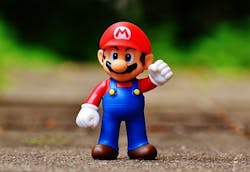Gaming key to tackle water-energy nexus across Europe, finds research
CARDIFF, Wales – New research by Cardiff University is exploring whether a game-led approach to energy efficiency in European industry could help to save water...
The WaterWatt project aims to develop an energy efficiency tool that is based on the use of game elements and game thinking in non-game environments to help increase target behaviour and engagement.
It will enable workers to engage with their colleagues through the use of mobile technology applications, allowing them to compete (or collaborate), and to achieve more energy efficient behaviours, while receiving virtual ‘rewards’ in the process.
The project involves six partners from five countries - Germany, Italy, Norway, Portugal and the UK - and focuses on seven energy intensive sectors: steel, non-ferrous metals, food and beverage, cement/ceramics, chemicals, petrochemicals and pulp and paper.
As part of the research, the Cardiff team is carrying out extensive case studies and interviews with industrial partners across Europe, and is contributing to the wider project aims of developing improvement measures for energy efficiency in industrial water circuits, as well as undertaking market studies and capacity building activities and sharing information in workshops and by e-learning.
Funded under the Horizon 2020 programme, Dr Dean Stroud – working with Dr Martin Weinel and Dr Claire Evans – from the University’s School of Social Sciences is part of an international team promoting the improvement of energy efficiency in industrial water circuits.
Dr Stroud said: “Gamification is an innovative engagement concept that utilises people’s natural desires such as socialising, learning, competition and achievement. It’s not about creating a game, but about offering a gameful experience.
“The project aims to develop an online platform to help remove barriers to energy efficiency, in particular the lack of expertise and information on energy management and saving potential in industrial water circuits.
“The improvement of energy efficiency across European industry is crucial for competitiveness. Specifically, by studying water management and energy efficiency within industrial water circuits, the project promises to develop social and technical solutions for the improvement of resource efficiency.”
Dr Stroud added: “We are hopeful that our project can show how gamification can help increase awareness about the reduction of energy consumption in water circuits and support people to get involved. It will also provide a shared knowledge base of best practices, technologies and organisational models concerning energy and water management; tools for self-assessment and monitoring; and field trial training and exercises.”
###
Read more

